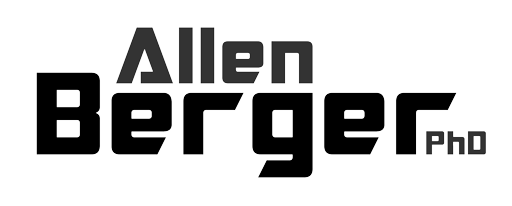Recovery Matters
An excerpt from
12 More Stupid Things That Mess Up Recovery
by Allen Berger, PhD., Hazelden Publishing
Nearly every serious emotional problem can be seen as a case of misdirected instinct…Every time a person imposes his instincts unreasonably upon others, unhappiness follows.
Twelve Steps and Twelve Traditions, 1952 -1981
Getting to Know Your Recovery Self
Before we became sober and entered recovery, our recovery self was more potential than actual. We all have potential essential selves: a compassionate self, a spiritual self, a wise self, and so on. But they get buried and overruled by the addict self. Now let’s get to know the recovery self.
It’s only when we began our journey in recovery that it began to grow into an essential self— one that can reawaken and coordinate the other potential selves to support your healthy, true self as an integrated personality.
The recovery self is important because it’s the intervention of this self that can restore order and balance to our lives. This part of us will accept help and admit that we need it.
This part of us is flexible and willing to experiment with different ways of coping. It knows that accepting our limitations and learning to live with them doesn’t subtract from but rather adds to who we are. This part of us is grounded in humility and is concerned with building our character. It is not interested in having but rather in being. This part of us does the right thing because it’s the right thing to do.
The recovery self is committed to resolving differences and to being of value to others. It knows that “we can accomplish together what I cannot accomplish alone.” When our motivation is grounded in our recovery self, we strive to grow. This growth-based motivation is a new development for us. It’s different from the motivation of our lower self, which is based on avoiding pain or correcting a deficit.
The motivation of our recovery self is robust and not easily diminished by setbacks or lapses. It works with our resilient self so that if we lose our balance, we regain it quickly. Our recovery self marshals our healthy and wise selves to challenge the addict self when it tells us that we’re not ready for sobriety. All these selves know we have been in trouble for quite some time and need help. They tell us that enough is enough. It’s time to stop the insanity.
But just to know we need help isn’t enough to override the influence of the addict self. We must continue to nourish and strengthen our recovery self at all stages.
You can begin by asking yourself, Is what I’m doing going to respect and honor my true self? Good question, but how will we know the answer?
Here are a few tips. We are nurturing and honoring our true self when we:
- promptly make amends for something we have done wrong
- admit and accept our limitations
- strive to be authentic and honest
- challenge our emotional dependency and learn to stand on our own two feet
- serve others
- learn from our experience or mistakes
- pressure ourselves to change rather than expect everyone else to change
- deal with life on life’s terms
You are starting to see that our recovery self leads us to rediscover our lost true self. So it is imperative that we get to know your recovery self.

Addict Self/ Recovery Self: A Dialogue
Becoming aware of the relationship that exists between the addict self and recovery self is one key to recovery. Once you become aware of your interactions with these parts of yourself, you can determine whether they’re out of balance and toxic to your recovery, or in balance and nourishing to your recovery.
If this interaction is toxic, then it’s critical that you do something to change it. To help my clients explore the interrelationship between the addict self and recovery self, I often suggest they act out an internal dialogue. In my office, I place two empty chairs facing each other; their recovery self is imagined sitting in one chair, while their addict self occupies the other. The client shuttles between the two, speaking the dialogue out loud. As the client externalizes the internal conflict, it becomes clearer what’s causing it and what can be done about it.
Our addiction can only exist if we obey the addict self or fail to effectively deal with it and what it tells us to do.


Do you have this book in Spanish?
Unfortunately, the book is not available in Spanish. At this point in time Hazelden doesn’t seem to have any plans to translate it.